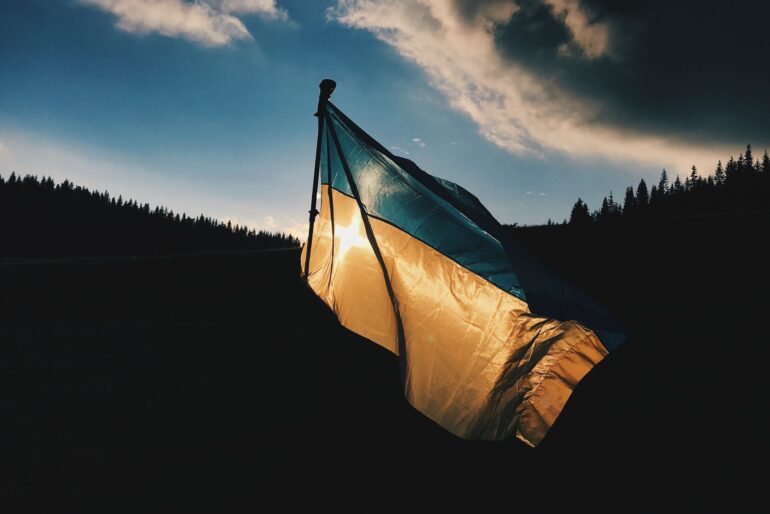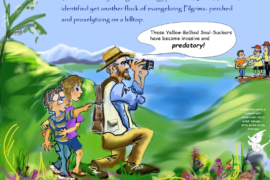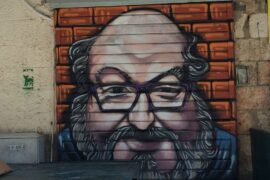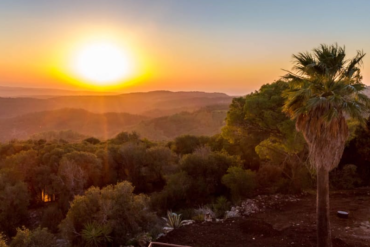Russian President Vladimir Putin has launched a brutal invasion of Ukraine under the false pretext of liberating the country from what he has described as criminals and neo-Nazis.
With the goal of returning Ukraine to Russian rule, Putin planned for a speedy invasion and toppling of the country’s popular president and democratically elected government.
Putin incorrectly believed Ukrainians would welcome Russian tanks as liberators because of their common language and shared history. But he failed to understand that Ukrainians relate to their shared history negatively, due to the Ukrainian language, culture, and desire for independence being suppressed. Even the Russian-speaking Ukrainian population has resisted a return to Moscow’s rule.
To Putin’s frustration, the outnumbered Ukrainian army has slowed the Russian invasion and racked up a high number of Russian casualties. Civilians have also bravely resisted Russian forces, throwing themselves at armored vehicles and confronting invading soldiers with sunflower seeds and Molotov cocktails.
The fighting has been intense and the world has watched in horror as missiles and bombs have destroyed homes, schools, and vital infrastructure – killing many civilians. More than a million people have already fled the country.
The conflict is a fresh and painful reminder of the brutality of war. From a spiritual perspective, it’s hard to make sense of the violence. Why would such evil destruction be unleashed on the world?
The Hebrew mission is to bring peace and harmony to humanity through the vehicle of a Hebrew kingdom in the land of Israel. This lofty goal is achieved through many stages of historical development. HaRav Avraham Yitzḥak HaKohen Kook (of blessed memory) teaches us that the upheaval of war accelerates the redemptive process. (Orot Ha’Milḥama 1)
War inspires a yearning for redemption and creates new conditions that push Israel and humanity towards the fulfillment of the messianic vision of true unity and love.
Wars leave people dissatisfied with the status quo. They create the desire for a better world. We can see this throughout history. The horrors of the First World War led to the establishment of the League of Nations, meant to discourage war and resolve national conflicts through diplomacy. The war birthed new ideas of freedom and self-determination. In Russia, the war sparked a people’s revolution against the shackles of the old world and inspired many others to revolt against the brutality of exploitation and colonialism.
The burst of idealism after the First World War collapsed against the reality of humanity’s developmental level at that historic moment. Principles of freedom and self-determination met the hard reality of imperialism. The idealism of the Russian Revolution fell to the cruelty and nihilism of its leaders.
At the same time, the war created massive geo-political shifts that advanced the redemption of Israel and humanity. At the start of the war, the Ottoman Empire had firmly ruled the land of Israel for hundreds of years. Virtually overnight, the war destroyed that empire, setting the stage for Israel’s ingathering and national revival.
The conditions created by the First World War, and the failure of humanity to actualize the yearnings for redemption unleashed by that war, eventually led to the Second World War. The catastrophic events of that war created a more refined and powerful desire for a better world. The outcome of the war marked the beginning of the end of colonialism. It led to the establishment of a more effective League of Nations, the United Nations. It propelled history forward and formed a new global order that has governed our reality to the present day.
But as the last nearly eight decades have shown, humanity did not reach its happy ending in the post-Second World War era. The dream of a peaceful world has not been realized. Conflicts have continued to rage around the world, from the Cold War to anti-colonial struggles, regional conquests by new states, and civil wars. The global order created in the wake of the Second World War is starting to crack under the contradictions of cultural imperialism, the exploitation of developing nations, and the failure of global institutions, like the United Nations, to prevent war and find justice for oppressed people.
The war in Ukraine is the most recent example of Israel’s unfulfilled promise, and humanity’s hope that one day “they shall beat their swords into ploughshares, and spears into pruning hooks; nation shall not lift up sword against nation; neither shall they learn war anymore.” (Yishaya 2:4).
HaRav Kook taught that every nation has a unique character, and that war accelerates the development of this character. (Orot Ha’Milḥama 6)
At the same time, Israel is the microcosm of the world. Thus, when a nation’s national character is underdeveloped, a similar lacking exists inside Israel. Ukraine’s fight for survival is accelerating the development of its character. Although the war is still new, it has already revealed Ukraine’s unity, courage, love of freedom, and wild determination to face down overwhelming odds.
In many respects, Israel might currently be lacking in the national traits currently being heightened in Ukraine. Over the last several decades, Israel has suffered a malaise of self-doubt, lack of initiative, and an inability to craft an inspiring vision that can move the nation forward. The Jewish people have become complacent with the seemingly intractable conflict with the Palestinians, and we feel weak in the face of foreign powers and international frameworks.
It’s possible that Ukrainian resolve in the face of the current adversity will inspire the development of Israel’s character, especially with so many Jews hailing from there. On a spiritual and practical level, the war in Ukraine has the potential to push Israel and humanity toward the messianic dream of peace, setting the stage for possibilities we think are impossible today. Time and history will tell. In the meantime, may peace soon return, and may the souls of the innocents lost “ascend upward to the root of life, and the essence of their lives bring an encompassing value of goodness and blessing to. . . the world, in all of its values and nuances.” (Orot Ha’Milḥama 1)





